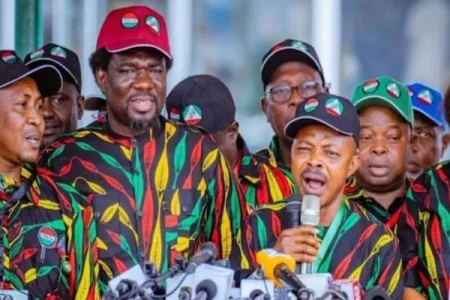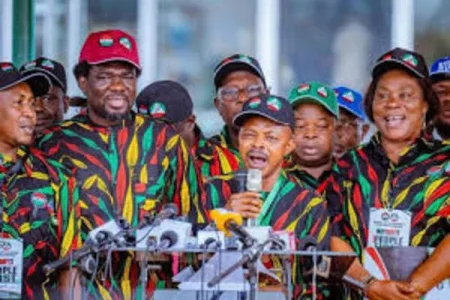
Nigerian labour unions reject the government's N62,000 minimum wage proposal as a "starvation wage," and insist on N250,000. Unions issue ultimatum, threaten resuming nationwide strike if demands not met by June 11 deadline. Impasse risks economic disruption.
Nigeria's major labour unions are digging in on their demand for a N250,000 (roughly USD 690) national monthly minimum wage, flatly rejecting the federal government's proposal of N62,000 as an unacceptable "starvation wage" for workers.
The hardline stance sets the stage for a potential resumption of economically disruptive labour unrest across the country if the dispute is not resolved by a June 11 deadline issued by union leaders.
"Our position is very clear. We have never considered accepting N62,000 or any other wage that we know is below what can take Nigerian workers home," said Chris Onyeka, assistant general secretary of the Nigeria Labour Congress (NLC), in a television interview Monday. "We will not negotiate a starvation wage." Onyeka said the N250,000 minimum wage figure represents the bare minimum "concession" labour can accept based on current market realities and soaring costs for basic goods like rice, yam and garri that Nigerian families struggle to afford on current salaries.
He warned that if concrete action is not taken by midnight Tuesday to meet labour's demands through new minimum wage legislation, the NLC and Trade Union Congress (TUC) will reconvene to decide on re-launching the indefinite nationwide strike temporarily suspended last week.
"If after tomorrow, we have not seen any tangible response from the government, the organs of the Organised Labour will meet to decide on what next," Onyeka stated bluntly. "It's like putting a pause on [the strike]...if the organs decide to remove that pause, it means we go back to what was in existence before."
A previous 4-week strike in March crippled banking, aviation, education and other key industries before being called off when the government proposed the N62,000 minimum wage figure that unions swiftly rejected as inadequate.
With both sides entrenched, the high-stakes standoff risks plunging Africa's largest economy back into industrial strife that could threaten GDP growth and fiscal stability unless a compromise can be struck in the coming hours.
For the government, meeting labour's N250,000 minimum wage demand while maintaining fiscal discipline looms as an immense challenge. But failing to resolve the impasse could bring severe economic and political consequences ahead of national elections in 2025.




